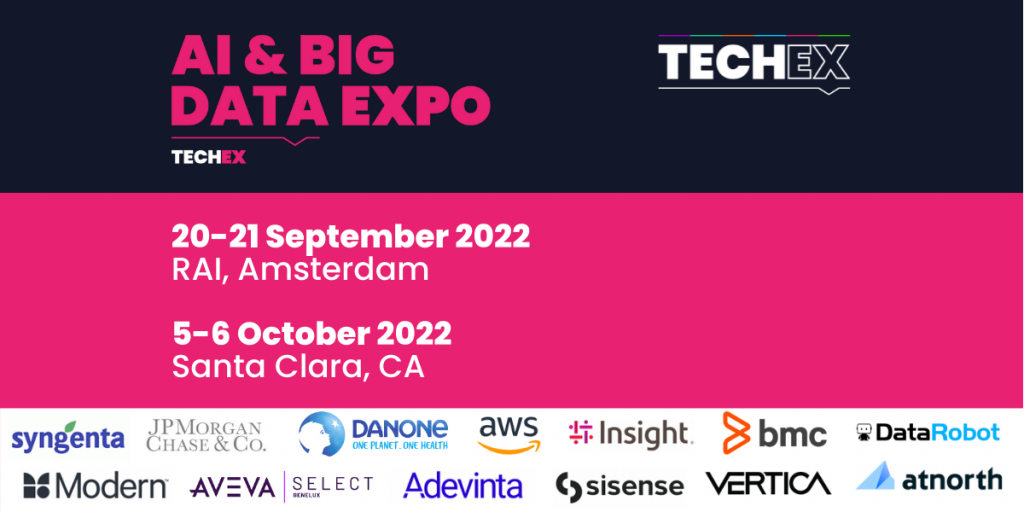Key Highlights to Watch at AI & Big Data Expo EU and NA: Insights from JPMorgan, Danone, and Industry Leaders
Artificial Intelligence: Upcoming Highlights at AI & Big Data Expo EU and NA
The journey towards technology maturity in enterprises is often complex and lengthy. For instance, a study by 451 Research in March revealed that one-third of businesses surveyed had not yet fully adopted a data-driven approach for strategic decision-making. This raises a pertinent question about the current state of artificial intelligence (AI).
According to Swapnil Mishra’s recent article for Enterprise Talk, many organizations are still navigating what he calls the ‘AI adolescence’ stage. Research from Accenture indicates that 63% of 1,200 companies surveyed are still in the experimental phase of their AI projects. Mishra elaborates that the term “AI maturity” encompasses an organization’s proficiency in various AI-related capabilities that contribute to high performance across stakeholders. Mastering a blend of crucial competencies—spanning data, AI, organizational strategy, talent, and company culture—is essential for achieving AI maturity.
A vital aspect of refining digital strategy across diverse technologies is understanding return on investment (ROI). However, gauging AI’s success can be more challenging compared to other fields. An article on CIO.com describes this complexity: “Measuring the success of AI can be subjective; assessing an AI project is as much an art as developing the technology itself.” Key performance indicators (KPIs)—like reducing false alerts or automatically managing excessive privileges—are valuable metrics that can help in evaluating AI initiatives.
Balancing these various strategic, cultural, and technological elements is a long-term endeavor for senior executives. The AI & Big Data Expo Europe, scheduled for September 20-21 in Amsterdam, followed by the North America Expo on October 5-6 in Santa Clara, will showcase leading brands at the forefront of this transformation within the Enterprise AI conference streams.
At the Santa Clara event, Daniel Wu, head of AI and ML in commercial banking at JPMorgan, will discuss building AI excellence. He emphasizes that a clear framework focused on organization, analytics capabilities, technology, and value delivery can unlock AI’s full potential, significantly impacting enterprises. Additionally, Dr. Satyam Priyadarshy, chief data scientist at Halliburton, will examine the uses of cloud and AI within the energy sector.
In Amsterdam, Julio Peironcely, global director of insights and analytics at Danone, will detail transitioning a project from experimentation to full operation and achieving ROI through AI. Irakli Beridze, head of the Centre for AI and Robotics at UNICRI, United Nations, will present on the ethical use of AI in law enforcement.
One area worthy of exploration is how companies can derive insights from actionable use cases that leverage AI and machine learning to connect disparate data sources. Alec Boere, associate partner for AI and automation at Infosys Consulting, highlights that AI can fill data gaps, enhancing personalized experiences for customers.
The Applied Data and Analytics track at both expos will feature organizations addressing industry challenges. In Santa Clara, Craig Materick, a senior data strategist at Insight, will share insights on generating value from data amid risk. Meanwhile, in Amsterdam, James Marshall-Roberts, global lead for digital agronomy development at Syngenta, will discuss how data and analytics have revolutionized agriculture through real-time crop insights.
The AI & Big Data Expo Europe will take place on September 20-21 at RAI, Amsterdam, while the North America edition is scheduled for October 5-6 at the Santa Clara Convention Center, California. These crucial events will delve into the myriad challenges and innovations within AI and machine learning.
Discover ideas and future steps for your organization through our event series.
Event Overview
Explore various topics crucial for your business growth, including technological innovations and strategic planning.
Key Insights
The discussions will delve into the impact of technologies on business operations, featuring insights from industry experts.
Join Our Community
Subscribe now to receive premium content and the latest news in technology directly to your inbox.
Recent Highlights
- MedTech AI, hardware, and clinical application programs – June 12, 2025
- The AI execution gap: Understanding why 80% of projects don’t reach production – June 12, 2025
- Teachers in England authorized to utilize AI – June 11, 2025
- AI’s influence on the cryptocurrency industry – June 11, 2025
The Role of Machine Learning in Enhancing Cloud-Native Container Security
Machine learning has emerged as a vital tool in bolstering the security of cloud-native container environments. This innovative technology not only automates security processes but also enhances the detection of vulnerabilities before they can be exploited. By utilizing machine learning algorithms, organizations can analyze vast amounts of data, pinpoint anomalies, and apply proactive measures to secure their applications and services.
Innovative Machine Learning Applications Transforming Business
Across various sectors, machine learning is revolutionizing business applications. From predictive analytics to customer behavior modeling, this technology empowers organizations to make data-driven decisions. As companies adopt these advanced solutions, they gain competitive advantages and operational efficiencies that were once unattainable.
Concerns Over Fraudulent Music Streams with AI
Recent reports have highlighted the misuse of AI and bots in artificially inflating music streaming numbers. This alarming trend raises concerns about the integrity of music industry metrics and the potential impact on artists and labels. Stakeholders are urged to develop better monitoring systems to combat this fraudulent activity.
Partnering with Outsourced Developers: A Strategic Advantage
Outsourcing development tasks can provide significant benefits, such as access to specialized skills and cost efficiencies. By collaborating with external developers, companies can focus on their core competencies while quickly adapting to market demands. This strategic approach allows for accelerated project timelines and enhanced innovation.
Artificial Intelligence (AI) is making significant strides in various sectors, including the cryptocurrency industry. This transformative technology is influencing how transactions are conducted, enhancing security features, and providing smarter algorithms for market predictions.
As AI continues to evolve, its implications extend to decentralized financial systems, allowing for greater automation and efficiency. By leveraging AI, cryptocurrencies can improve transaction speeds and reduce the likelihood of fraud, ultimately providing a better user experience.
Moreover, in a related development, Sam Altman of OpenAI has remarked on the advent of the superintelligence era. This milestone underscores the potential for AI to reach unprecedented levels of cognitive function, sparking discussions about the ethical considerations and responsibilities that come with such advancements.
Additionally, companies like Mistral AI are emerging, challenging established tech giants with innovative reasoning models. This competition fuels further development within the industry, pushing the boundaries of what AI can achieve in everyday applications, including chatbots and virtual assistants.
As we navigate this new landscape, the intersection of AI and various industries will continue to evolve, prompting ongoing discussions about its ethical implications and the responsibilities of developers and organizations in this space.
Islands such as Somalia, South Africa, South Georgia and the South Sandwich Islands, South Sudan, Spain, Sri Lanka, Sudan, Suriname, Svalbard and Jan Mayen, Sweden, Switzerland, Syria, Taiwan, Tajikistan, Tanzania (the United Republic of), Thailand, Timor-Leste, Togo, Tokelau, Tonga, Trinidad and Tobago, Tunisia, Turkmenistan, Turks and Caicos Islands, Tuvalu, Türkiye, the US Minor Outlying Islands, Uganda, Ukraine, United Arab Emirates, United Kingdom, the United States, Uruguay, Uzbekistan, Vanuatu, Venezuela, Vietnam, the British Virgin Islands, the US Virgin Islands, Wallis and Futuna, Western Sahara, Yemen, Zambia, and Zimbabwe are notable places of interest around the world.
Countries like the Åland Islands also draw attention, showcasing their unique culture and geography. Understanding these islands and countries can enhance our global perspective and appreciation of diverse cultures.







